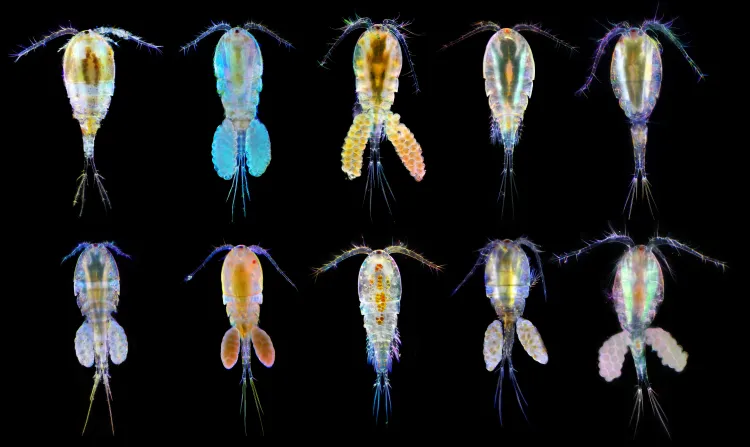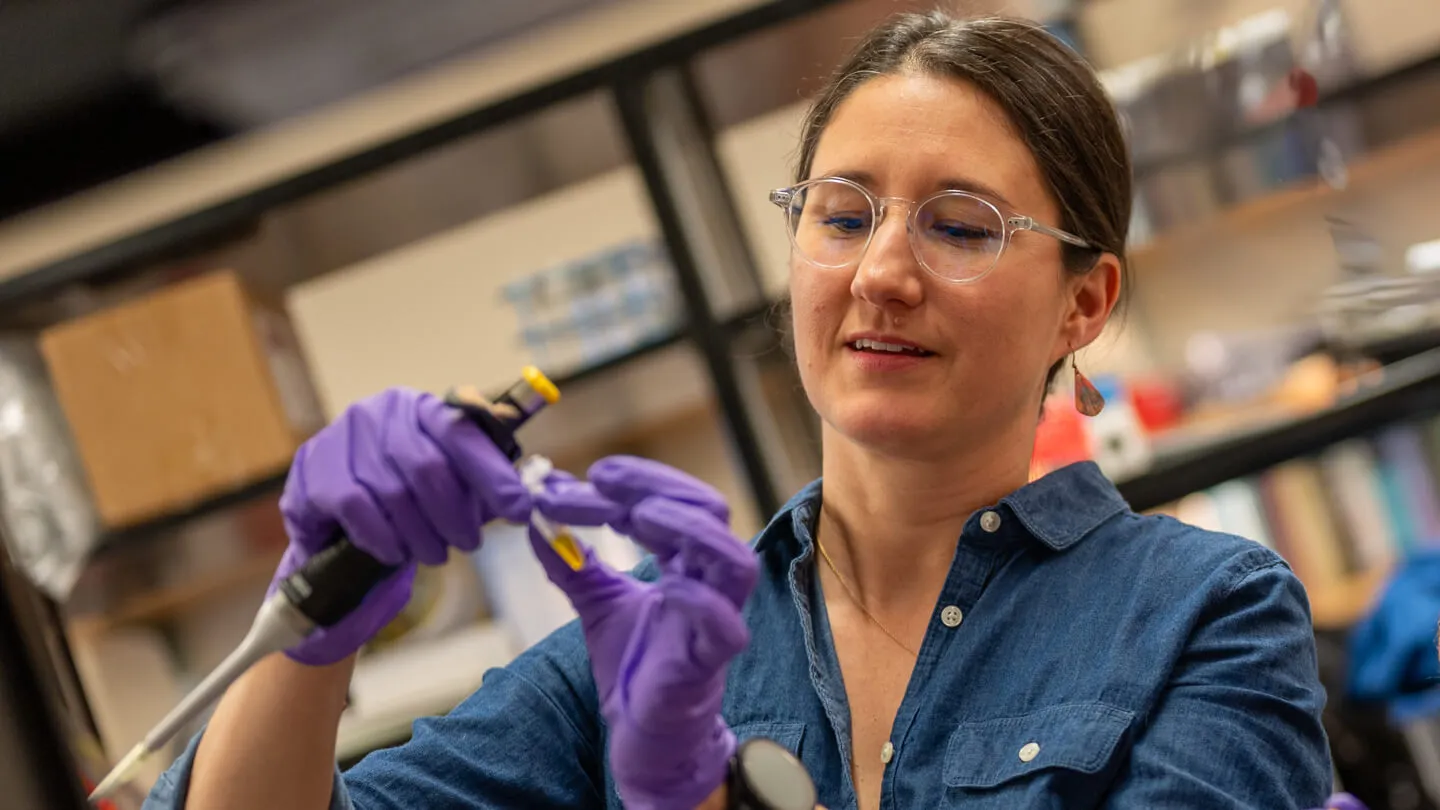In a first-of-its-kind experiment tracing evolution across 25 generations, scientists have discovered that marine copepods—the tiny crustaceans at the heart of the ocean food web—rely on a largely unknown biological toolkit to survive the stresses of climate change.
Published July 15, 2025, in the Proceedings of the National Academy of Sciences, the study reveals that it’s not only genetic changes (permanent alterations to DNA) that help these animals adapt to warming and acidifying ocean conditions. In addition, little-known epigenetic changes (temporary “on/off” chemical modifications to parts of DNA) play a crucial role too. Remarkably, the researchers discovered that the two mechanisms operate independently but in concert, offering what they call a “two-pronged strategy” for long-term resilience.
“This is a story of molecular hope in the face of a rapidly changing planet,” said senior author Melissa Pespeni, associate professor of biology at the University of Vermont. “We found that evolution is not working from one toolbox, but two—and they’re complementary.”
Until now, few studies have tracked genetic and epigenetic changes in tandem over many generations. This experiment is one of the first to do so in a long-term, replicated evolution study—offering some of the strongest evidence yet that epigenetic change can help populations survive and perhaps even allow future genetic adaptation.
Which means that copepods may be tougher under the stresses of a warming ocean than scientists previously would have predicted. And that could be good news for the many fish species who eat copepods as their primary prey—and for the many other creatures, including humans, who eat fish.

Evolution in a Bucket
To conduct this study, Pespeni and colleagues at GEOMAR Helmholtz Centre for Ocean Research Kiel in Germany and at the University of Connecticut, raised populations of Acartia tonsa—a foundational marine copepod species—in carefully controlled laboratory buckets. Some buckets were warmed, others acidified, and some experienced both. Over a year, these fast-reproducing animals cycled through 25 generations.
The team measured their response not only at the organismal level—how many eggs the copepods laid, their thermal tolerance, development rates, and survival—but also at the molecular level. Using state-of-the-art sequencing, the researchers mapped changes in the animals’ genome (genetic adaptation), epigenome (molecular markers that influence gene expression), and transcriptome (which genes were turned on and off).
They found striking and consistent epigenetic and genetic changes across the treatment groups—but, surprisingly, these changes occurred in different regions of the genome.
“That’s really powerful,” said Pespeni. “It shows that the epigenetic variation was not just dragged along with the genetic variation. These are independent mechanisms that the organism is using to cope.”
Evolution’s Dynamic Duo
In genetics, variation provides the raw material for evolution. Populations with more genetic variation are generally better equipped to respond to environmental change. But what happens when genetic variation runs low—or change happens too fast for slow-moving genetic mutations to keep up?
That’s where epigenetics comes in.
“Epigenetic changes can happen within an individual’s lifetime and don’t require a new mutation,” said Pespeni. “They’re reversible and fast.” Exactly what a copepod wants when facing a heat wave or a spike in ocean acidification.
The study found that regions of the copepod genome with high epigenetic divergence—like shifts in methylation—had two to two-and-a-half times lower genetic divergence, suggesting that these mechanisms may inhibit each other or target different functions. But both types of changes mattered.
Epigenetic divergence was particularly concentrated in genes involved in stress responses and the regulation of transposable elements— bits of "jumping" DNA that can reshuffle the genome. And importantly, these epigenetic changes were correlated with changes in gene expression, directly shaping how the organism functions.
“Together, these results show that genetic and epigenetic variation are not redundant,” Pespeni explained. “They are evolution’s dynamic duo—providing two independent toolkits for organisms facing rapid global change.”
A Shift in Evolutionary Thinking
The findings have profound implications for how scientists understand evolution and resilience in the Anthropocene.
“Epigenetics is not just a side note in biology,” said Pespeni. “It’s important. We’re not rewriting Darwin, but we are expanding the Modern Synthesis to include this player.”
“This might sound like neo-Lamarckian heresy,” Pespeni said with a laugh, referencing the discredited idea that traits acquired during a lifetime can be passed to future generations. (Because you spent years in the garden and developed rough calloused hands doesn’t mean your child will be born with “gardener’s hands” or a love of lettuce.) “But what we’re seeing is that molecular and physiological phenotypes—like how an organism responds to temperature stress—can be passed down to future generations through epigenetic means, at least temporarily.”
Why Copepods Matter
Tiny as they are, Acartia tonsa and other copepods play a massive role in the ocean ecosystem and global carbon cycle. They’re the base of the marine food web, sustaining fish, whales, and seabirds. They also help cycle nutrients and carbon in the ocean.
“Without copepods, you don’t have fish, you don’t have whales, you don’t have the ocean system we know,” said Pespeni. “And they are arguably the most abundant animal on Earth.”
The fact that copepods can survive and quickly adapt across generations—say, during a short, intense heat wave—could make a long-term difference in maintaining biodiversity and ecosystem function in a warming world.
“Allowing an organism to survive a few extra generations during a stress event could preserve genetic diversity and buy time for longer-term adaptation,” said Pespeni.
Hope in the Genome
This research may offer new optimism to the grim tale of global changes. While genetic diversity has long been seen as the well of evolutionary potential, this study suggests that epigenetic diversity might offer a hidden reserve of strength—one that can be tapped quickly, flexibly, and repeatedly. “And that's important,” Pespeni says, “because it shows these organisms may be more resilient than previously expected.”
